When a pet bird uses its mouth on your hand, you may just be being "beaked" rather than bitten. Birds use their beaks much like they use feet, to grasp items and maintain balance; "beaking" is the correct term for this behavior. It's important to discriminate between beaking and a bird bite so that you can provide the appropriate response when your pet bird gives you a true bite.
Why Birds "Beak" You
There are several reasons that a bird might beak you as opposed to giving you a true bite. First, pet birds routinely use their beaks as a third hand to test the strength of perches. They also use their beaks to generally check out the physical rigidity of all climbing structures, including its owner's hand before they step up. New bird owners often confuse this exploratory beak usage with being bitten.
Also, a bird's tongue contains myriad nerve endings, and it is used to sense taste and texture. If you are wearing new clothing or are holding new apparatus in hand, that beak may be aiding the tongue in evaluating those items that are new to the bird's world.
No matter the reason, while being beaked may not be the most pleasant experience, it feels quite different from an actual bite. Beaking feels more like the bird is using you as a stabilizing anchor point as it shifts posture and collects new information about its surroundings.
A True Bird Bite
Birds will truly bite now and then, but only if they are frightened, startled, or if they feel cornered and vulnerable. Chances are that your bird is not trying to be aggressive, as biting is not a dominance behavior in birds. Biting among wild birds is usually only an act of self-defense, and not a "pecking order" signal, nor any type of punishment or social correction.
The true bite is often lightning-quick and hard. The bite is often accompanied by "ruffled feathers" body language which is meant to teach you to back away because the bird needs more space. However, many times this act of self-defense will break a handler's skin or at least result in a painful dent. This small injury is often the best way to tell the difference between being bitten and being beaked.
Responses to Beaking
One way you may inadvertently teach your bird to beak you more often is if you happen to let out a high pitched yell when you are beaked. This is especially true with younger birds that are still learning social norms.
Birds, especially the parrots, are likely to interpret your sound as a positive comment and reinforcer; the bird will think you are praising it rather than protesting. In this way, socializing a bird is much like socializing a puppy. Use high vocal tones for approval and use low tones to discourage what is unwanted.
Once you have discerned which kind of beak use is occurring most often, it will be easier to alter both situations. Understands that beaking is just part of owning any bird. But if your bird's beaking is causing problems, the best option is to use a wrist perch, a leather arm cover, or a vest as an added layer of protection for your clothing and skin.
If you are in fact being bitten, a different response is required. There are steps you can take to help put your bird at ease and curb this undesirable behavior.
Correct Any True Biting
To correct bad behavior in birds, try not to get excited or call out vocally. Instead, use a frown and body language that shows you are unhappy. Speak calmly and softly in low tones to tell your bird that this is not acceptable behavior. As you do so, immediately place the bird back in its cage or on its perch.
As you ponder what could have made your bird feel cornered enough to bite, give the bird a few minutes of "time out," with no eye contact from you by removing yourself from the room. The most important element of any time out is to resume interacting with your bird positively (within 10 minutes), which allows them to show you that they have learned to temper themselves a bit more.
Instruct any guests to expect normal beaking at times and not to react to it excitedly or vocally. This will help prevent your bird from feeling threatened by a stranger enough to bite.
Of special note: Young children may not be mature enough to respond to a bird correctly. Soft skin can be cut and injured by a bite or even by normal beaking, so proceed with caution when your bird is around young guests.

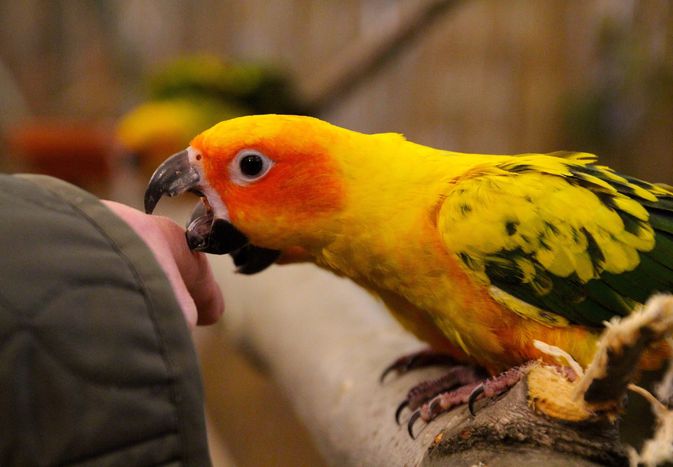
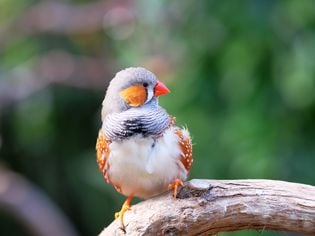
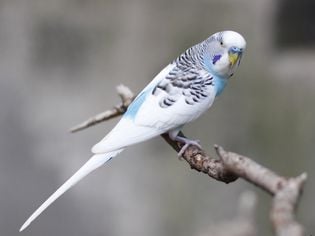
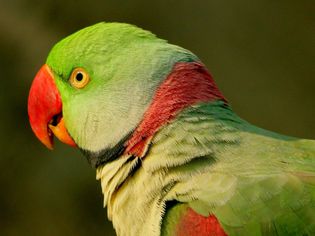
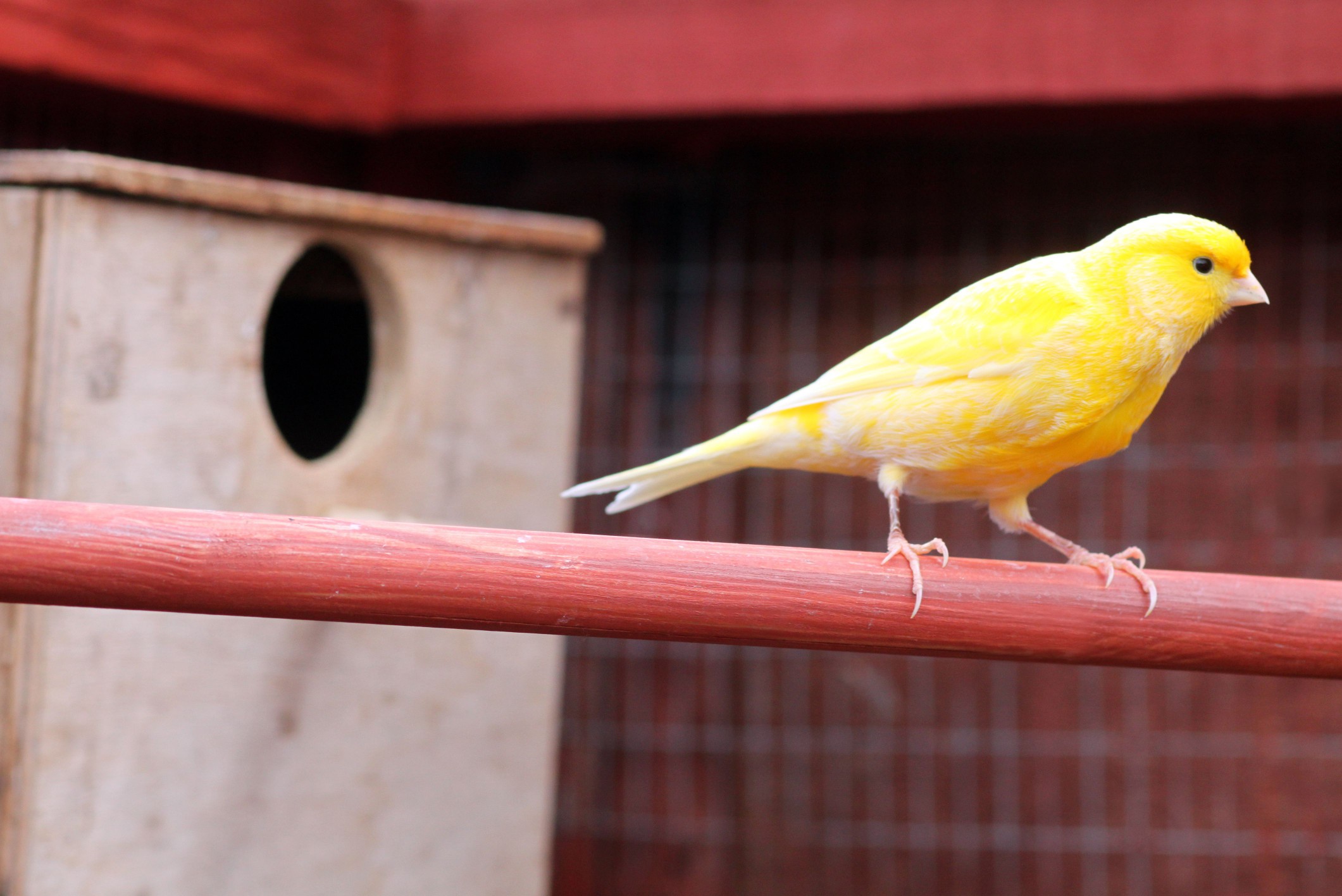
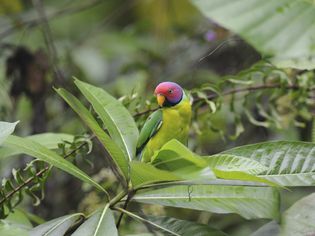
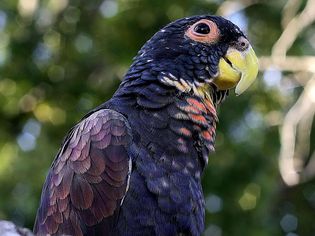
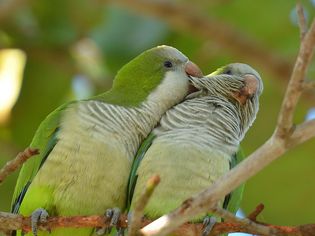
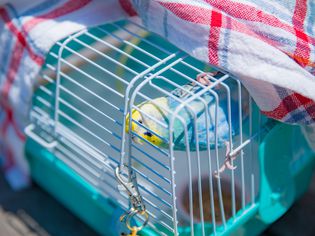
Comments on " Why Is My Pet Bird Biting and "Beaking" Me?" :